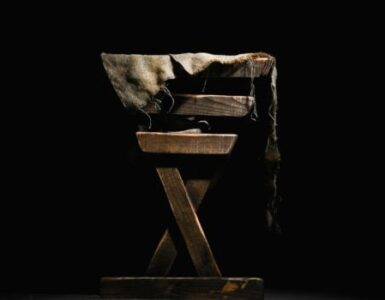Fifty years does not a jubilee make. This year marks fifty years since the founding of Ms. Magazine. In January we are likely to witness widespread handwringing over the fiftieth anniversary of Roe v. Wade. Sadly, we are only three years past the fiftieth anniversary of Monsignor Bugnini’s Novus Ordo. And now, as NPR reminds us, we are supposed to celebrate fifty years of “Free To Be You and Me,” the 1972 album brainchild of Marlo Thomas promoting re-defined gender roles making it okay for boys to cry and have dolls, and girls to rebuff the would-be princes in their lives.
I received the news of this anniversary while driving my wife to work and we agreed that we had never heard of this album even though we grew up during that era. As we listened to the story by NPR reporter Deena Prichep, however, it became clear we could most certainly see its effects. Marlo Thomas gushes about people—especially gay men—coming up to her on the street to declare that the album saved their life. The lightbulb moment for Thomas came with her dissatisfaction over traditional fairy tales where the princess depends on being rescued by the prince. “So old-fashioned,” Thomas declared. She wanted to provide a counter-narrative to that stuffy old world of stereotypes and rigid roles and encourage kids to think they could be anything they wanted to be. Prichep draws a straight line to today’s version of freedom by repeatedly referring to “gender roles” throughout her piece and stating that “in 1972 these messages were revolutionary.” She plays snippets of the album’s songs to reinforce the point. After hearing the title track with its old folkie banjo lick, as well as parts of “It’s Alright to Cry,” “Atalanta,” and “William Wants a Doll,” it became clear that the album was in the vanguard of moralistic gender homiletics. To bolster that perception, Prichep interviewed feminist icon and Ms. magazine (another jubilee project from 1972) founder Letty Cottin Pogrebin. Pogrebin’s comments include her take on the wisdom of children: “Kids have the purest sense of justice of anybody. They just say it’s not fair that I can’t do this.” Some parents have taken her message to heart as they allow their children to “transition.”
Prichep and Thomas drop a host of celebrity names of those involved in the project: Alan Alda, Shel Silverstein, Carol Channing, Diana Ross, Rosy Grier. The celebrity presence aided acceptance by adults and access to homes, schools, and libraries. Suddenly the sad reality of libraries hosting drag queen story hour, permitting unfettered porn access, and featuring Heather Has Two Mommies on their shelves isn’t quite such a “how did we get here” conundrum. And the undermining of traditional gender roles lamented by Christine Arata as “The Summer of Love” can now be seen as part of the revolutionary plan, with “Free to Be You and Me” codifying the dogma stemming from the 1960s outbreak of rebellion. The result? Paradigm shift, to borrow Thomas Kuhn’s much-used concept.
Lest you think that NPR is only now recognizing the shift, a very little digging shows they also commemorated the fortieth anniversary of the album. In the description for the piece NPR opined that “[f]orty years after its release, the album, with its themes of gender neutrality and individuality, is still a favorite among parents. Ten years ago Thomas laid out these now-familiar themes: “There are still children whose parents may not believe they are free to be whoever they want to be. I mean, if every child was free to be who they wanted to be, then there wouldn’t be gay children killing themselves. The whole point is that we don’t seem to have completely grasped the idea that every single boy and girl can be whoever they want to be.” Dan Kois, writing at Slate that same year, came to pretty much the same conclusion. In a piece with the catchy title “Free To Be You and Me 40th anniversary: How did a kids album by a bunch of feminists change everything?” he starts off with a vignette of his home life and how his daughter paints his toenails. A neighborhood boy, Cam, a fourth grader, must not have got the memo. “Cam, like every kid I know, has a set of firm beliefs about the clear dividing line between girls and boys. Girls and boys dress differently. They behave differently. They like different things. They manage their toes differently. They are different.” Kois takes us on a tour of “Free To Be You and Me” and its ideological context. “Free To Be was shaped by the philosophies of Thomas’ friend Gloria Steinem and the staff of her new magazine, Ms.—particularly Letty Cottin Pogrebin, who was already using the pages of that groundbreaking publication to advocate for a new style of gender-neutral parenting.”
Despite my ignorance of “Free to Be You and Me,” it does seem to resonate with many folks and truly be a cultural touchstone, as the Kois piece illustrates. In a spasm of black humor one might even muse that Justice Anthony Kennedy played the album while composing his infamous 1993 Planned Parenthood v. Casey decision in which he wrote that “[a]t the heart of liberty is the right to define one’s own concept of existence, of meaning, of the universe, and of the mystery of human life.” That certainly sounds like an endorsement of “Free to Be You and Me.” So how did my wife and I avoid this album-length (and later book and television show) paean to narcissism and cultural transgression? By unknowingly living out a version of The Benedict Option before it was fashionable to do so. My wife’s family was living in a cabin in Alaska, while I was an eleven-year-old on a northern New York dairy farm. No cable for either of us. For me it meant watching only what we could pick up on an antenna, and that was mostly Canadian channels and the likes of “Mr. Dressup,” a not-horrible kid show with less moralizing than the Marlo Thomas project. I was not like William wanting a doll. My friend Dave and I had re-fought World War II and were engaged in our unfolding of a third world war against the Soviet Union. We used our freedom to fight against the evil empire. Surely Marlo Thomas would not have approved.
✠
Photo by Ryan Arnst on Unsplash












